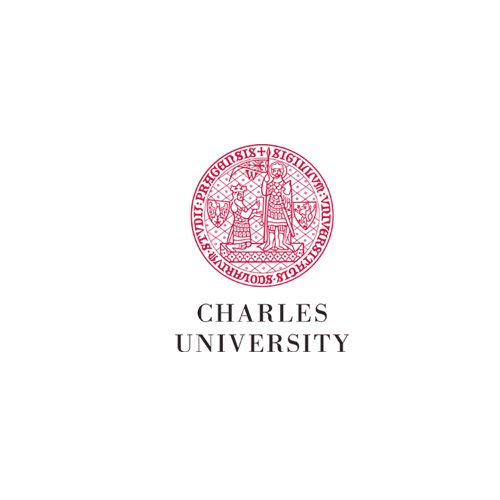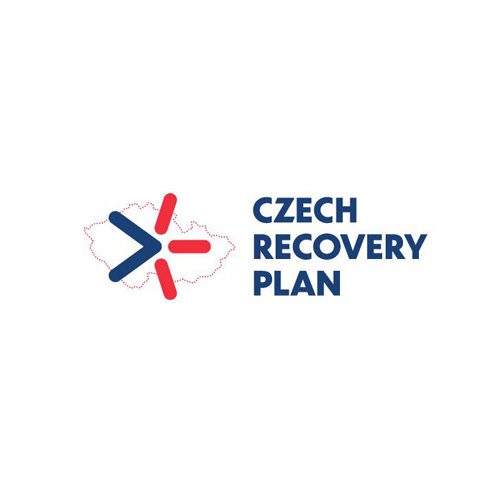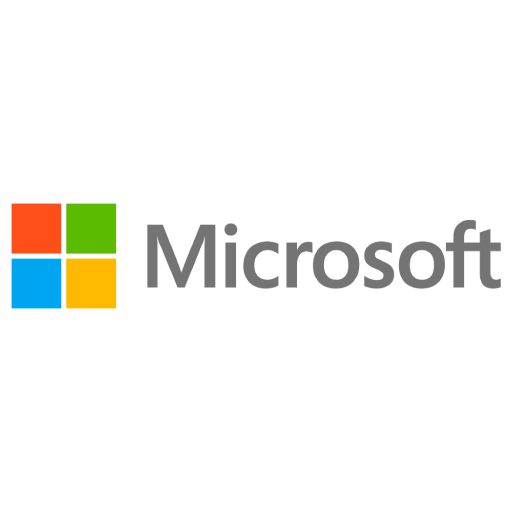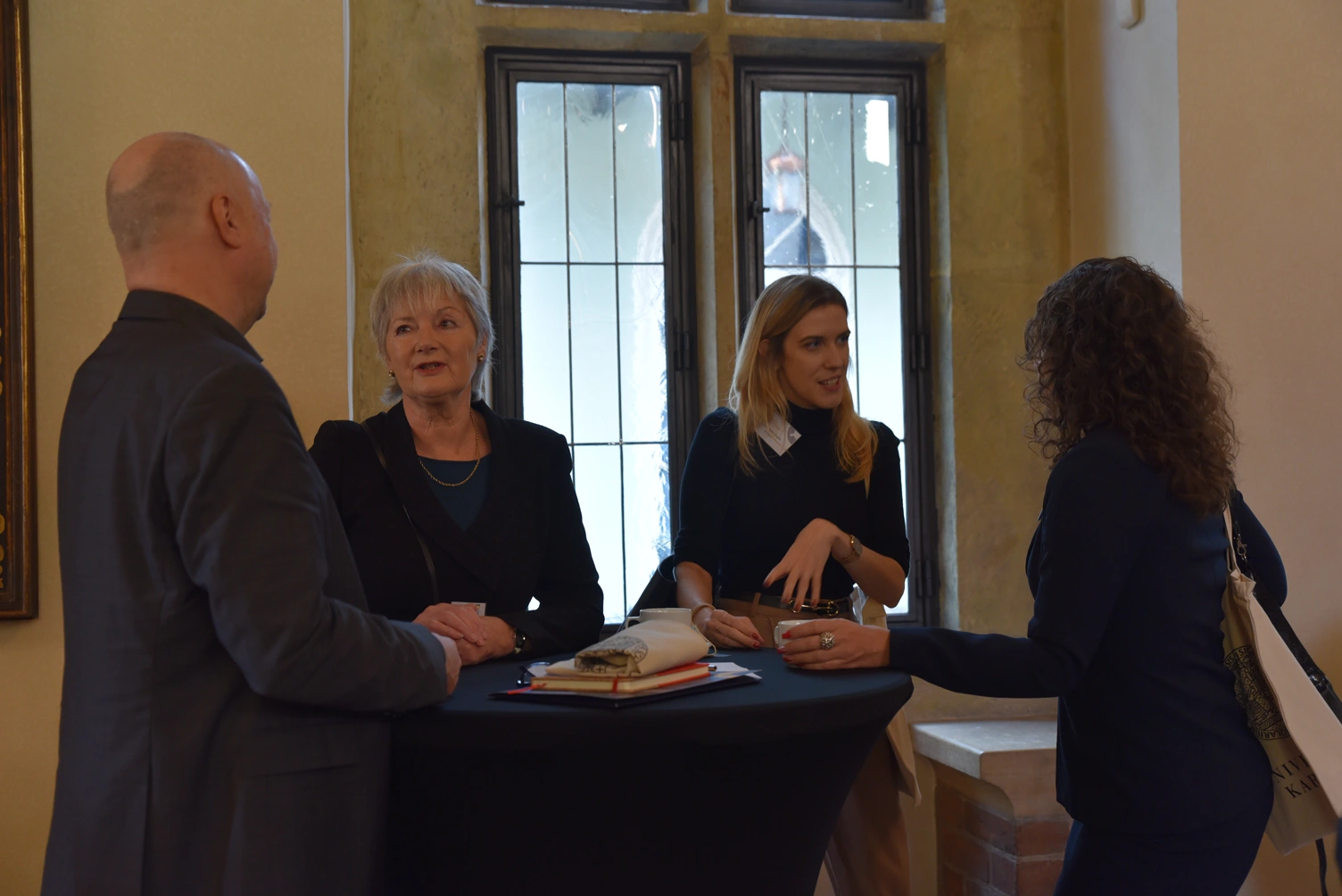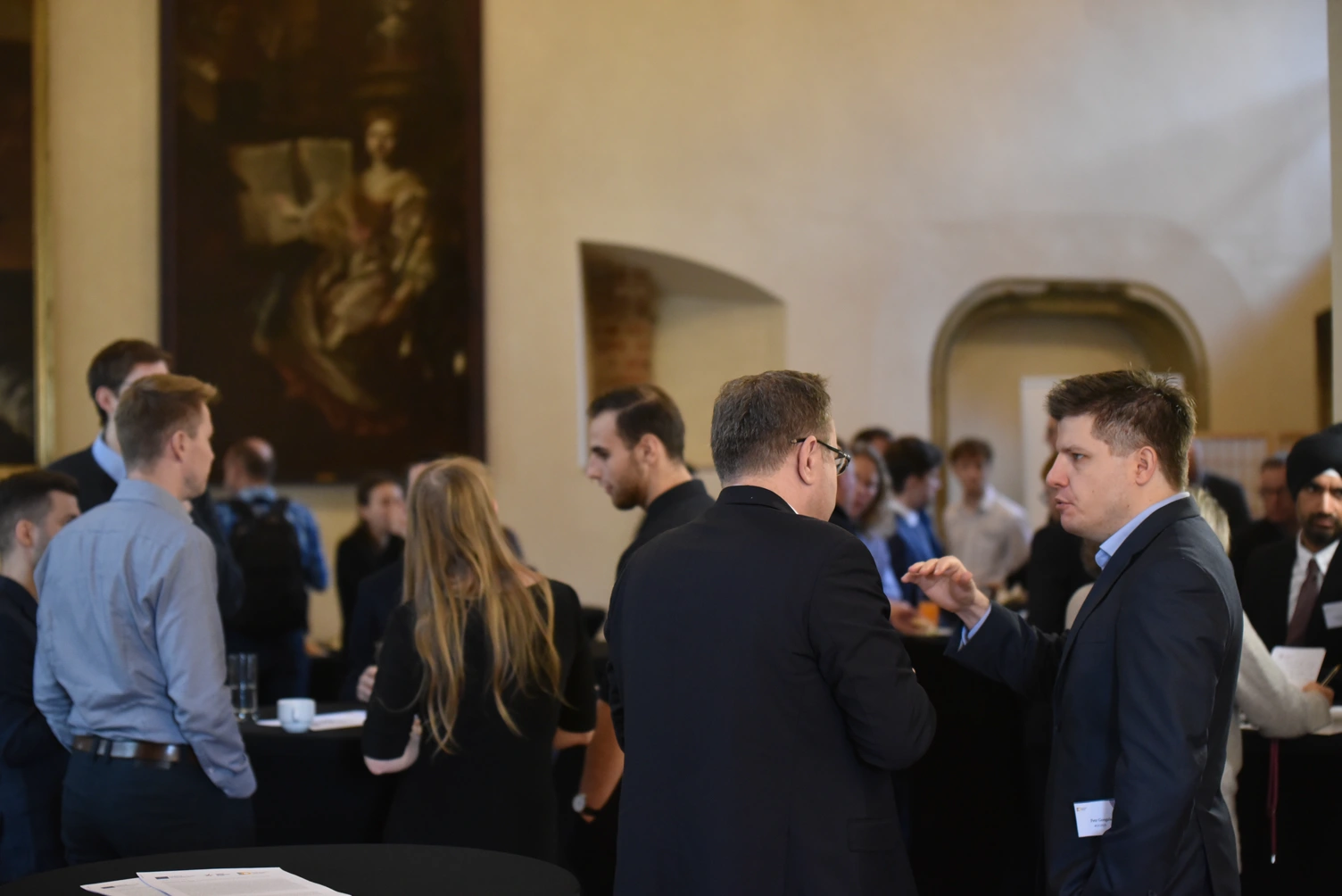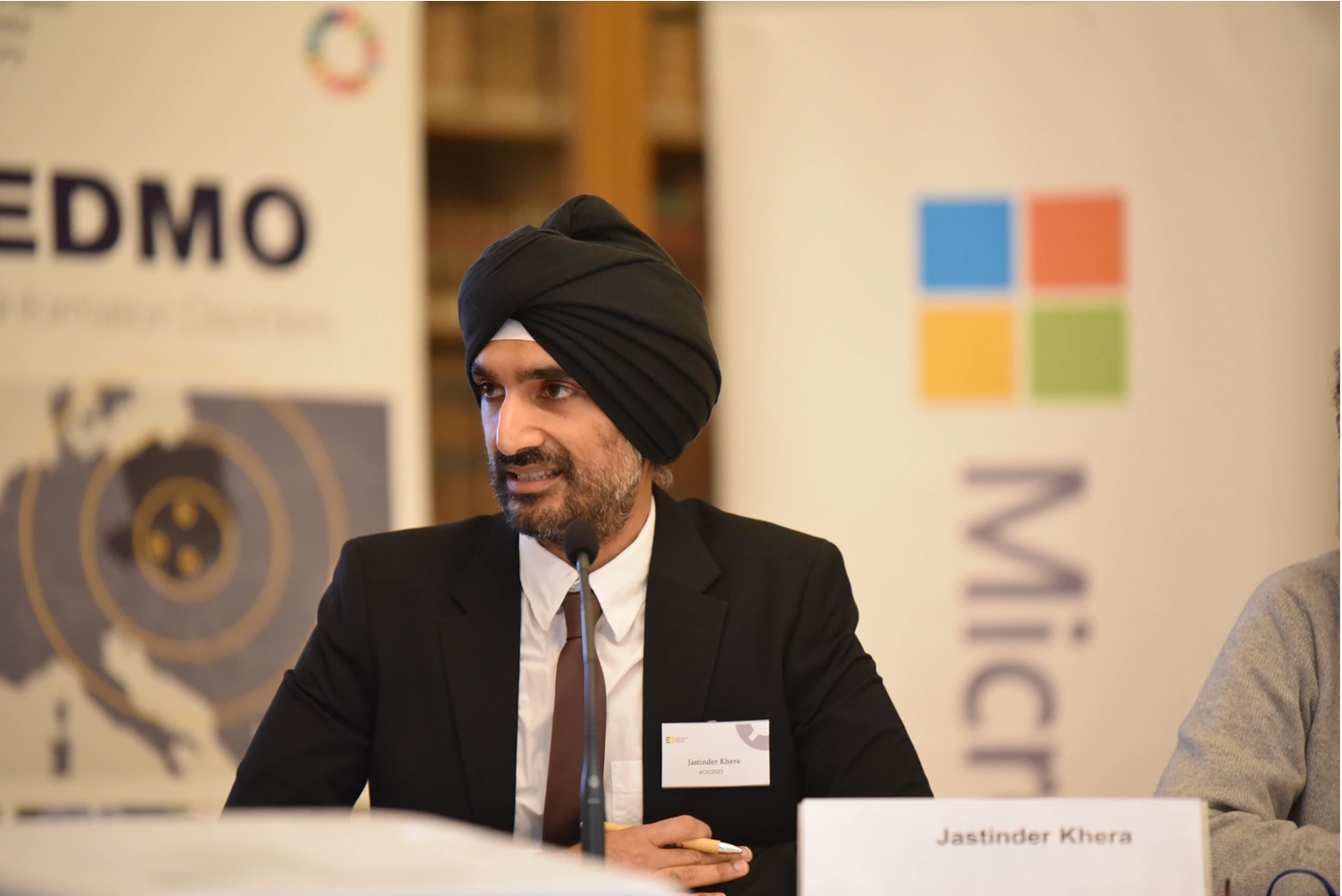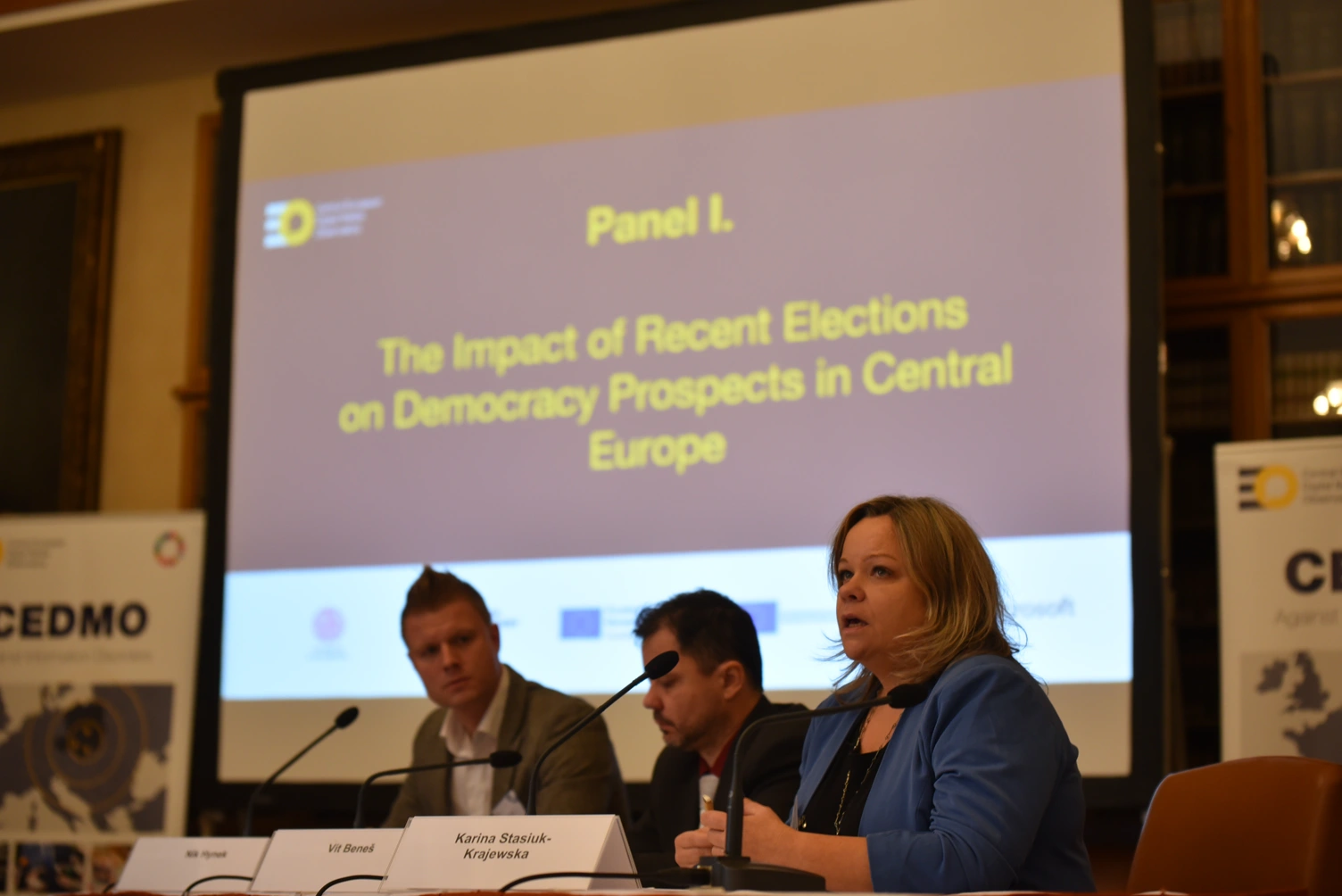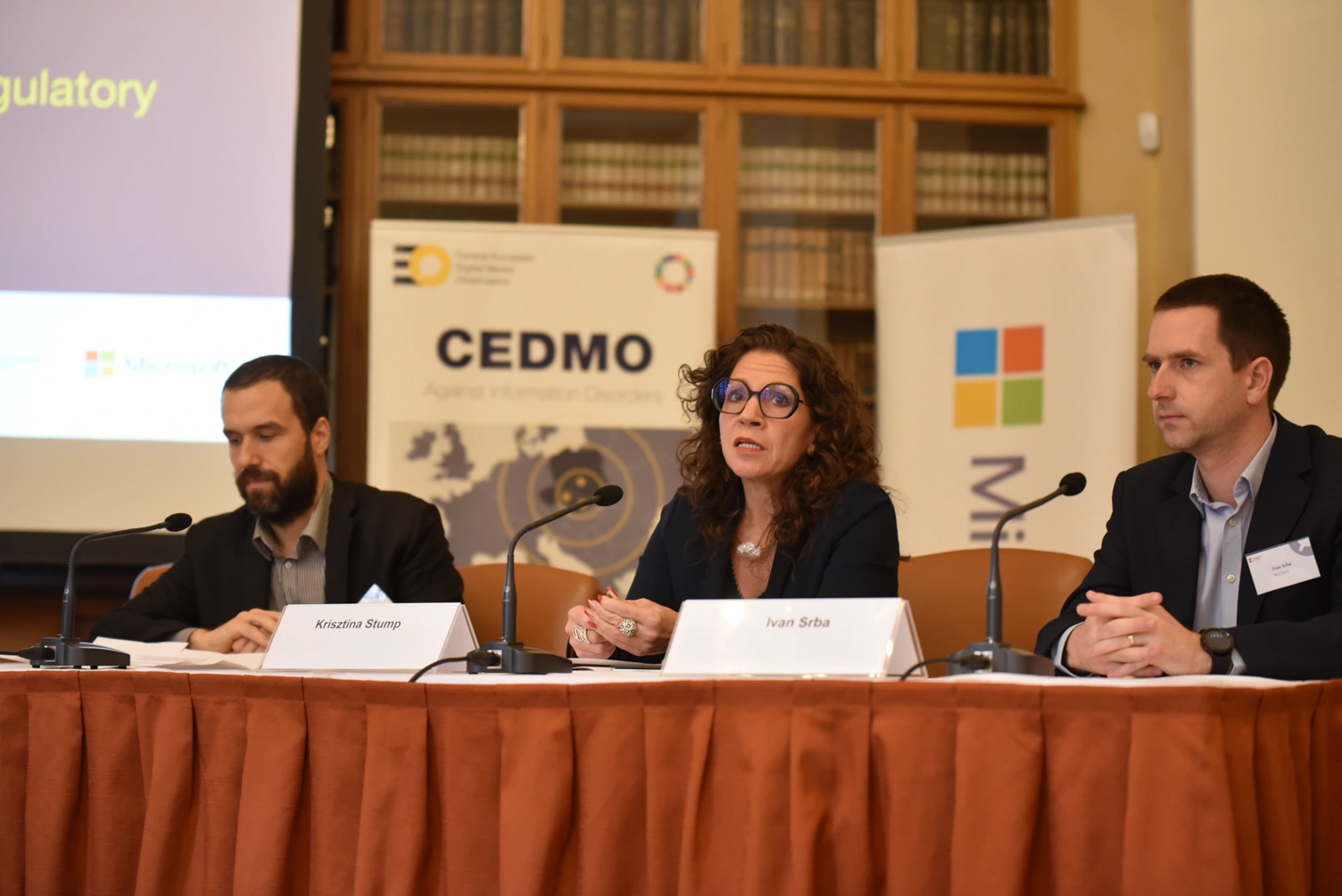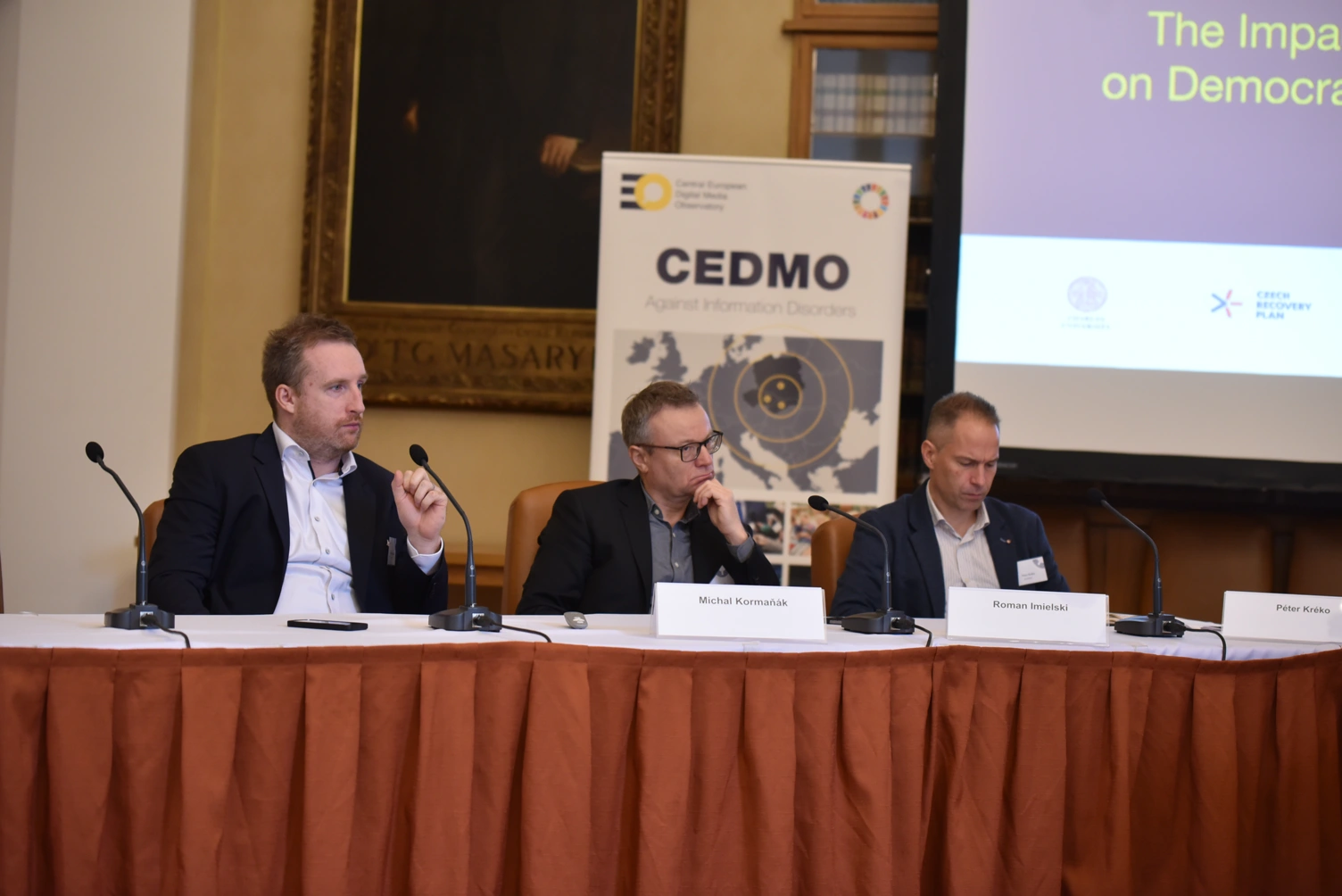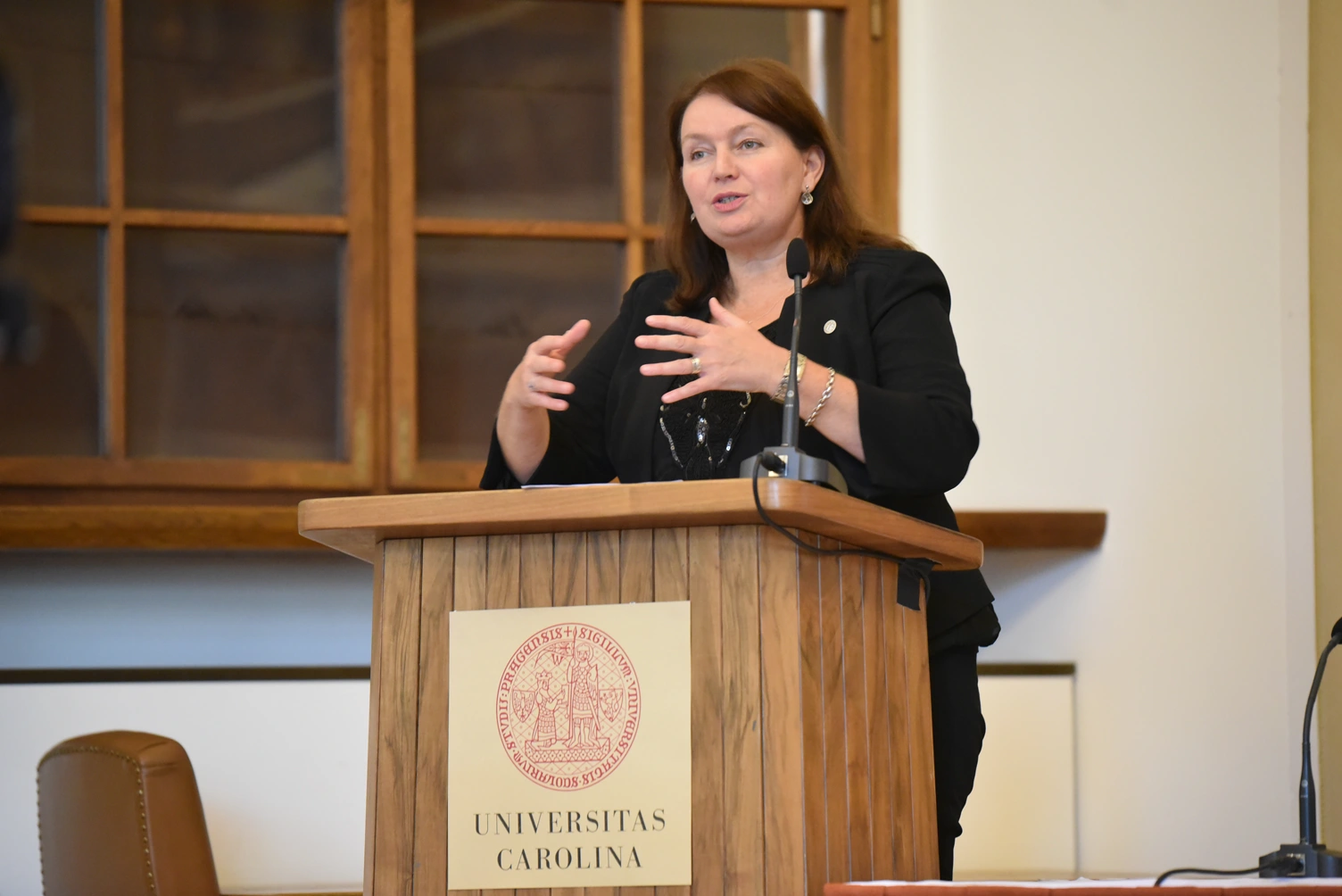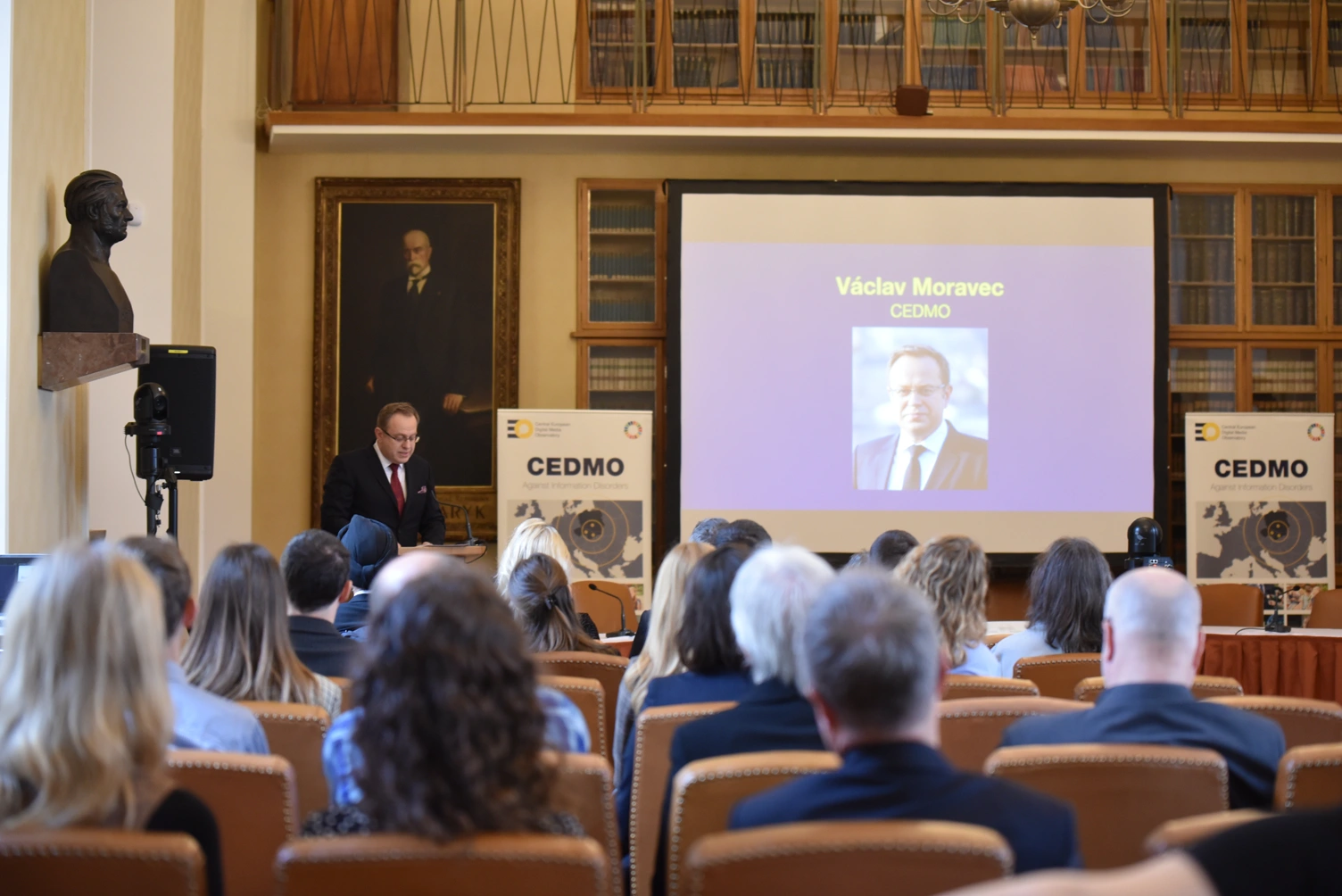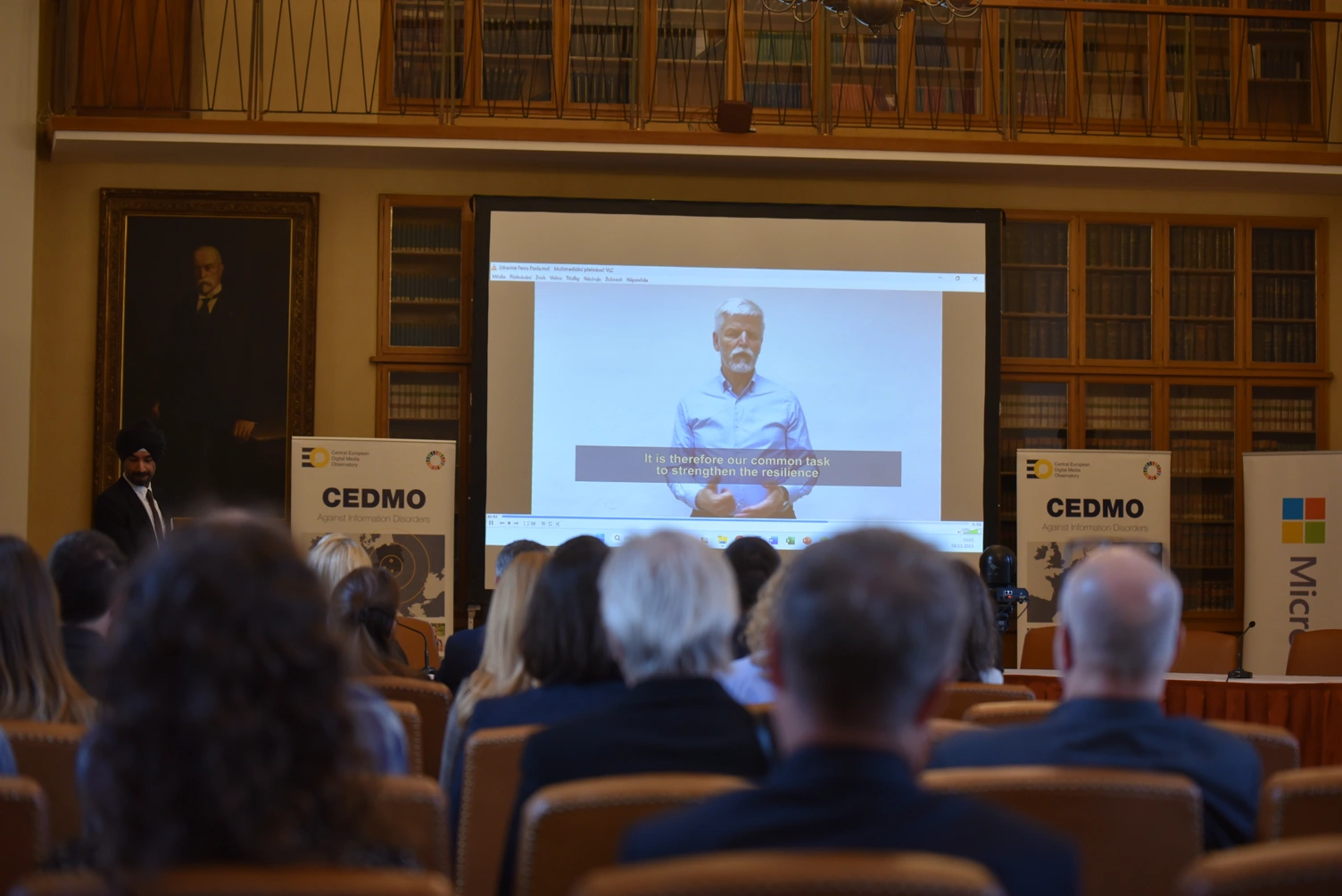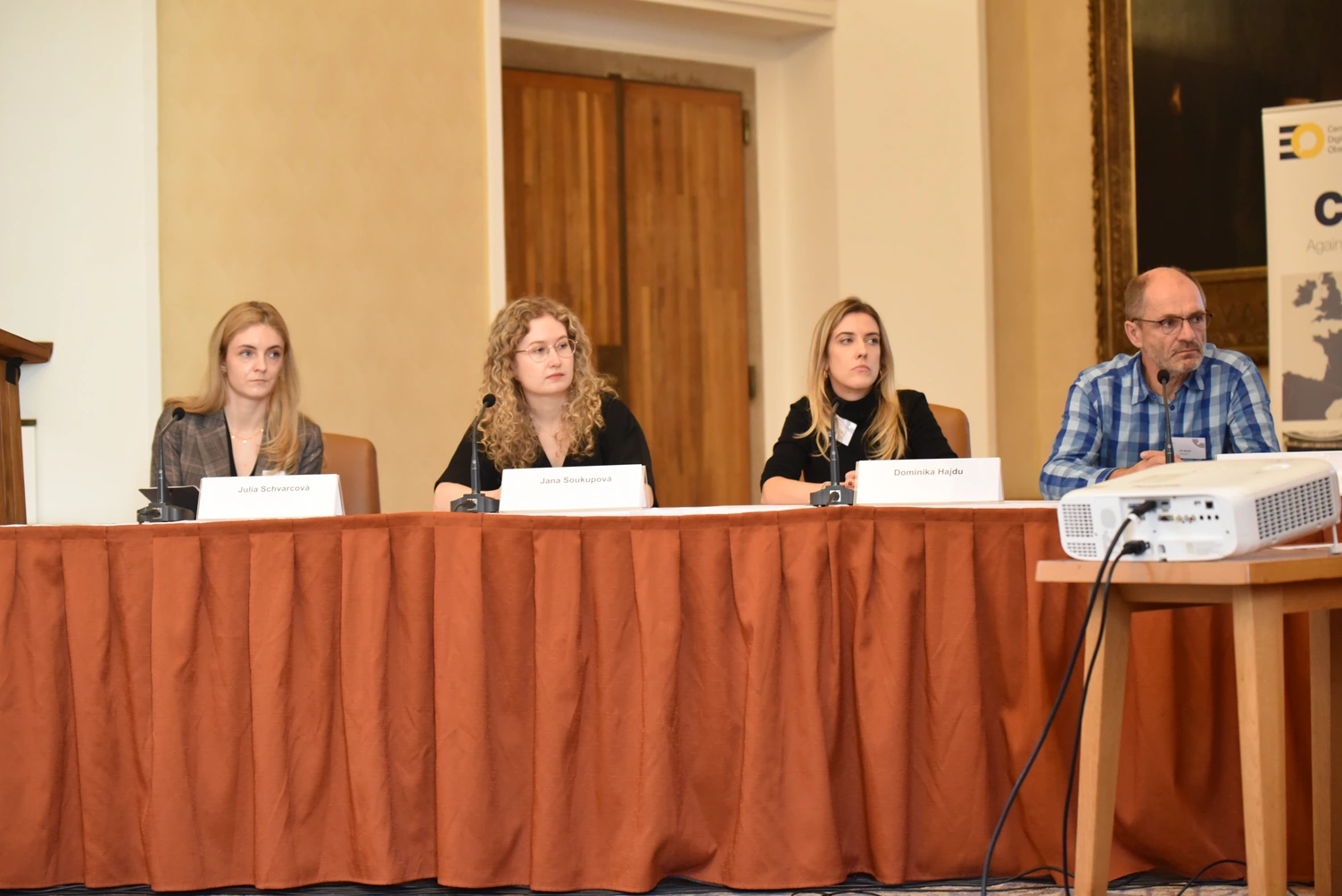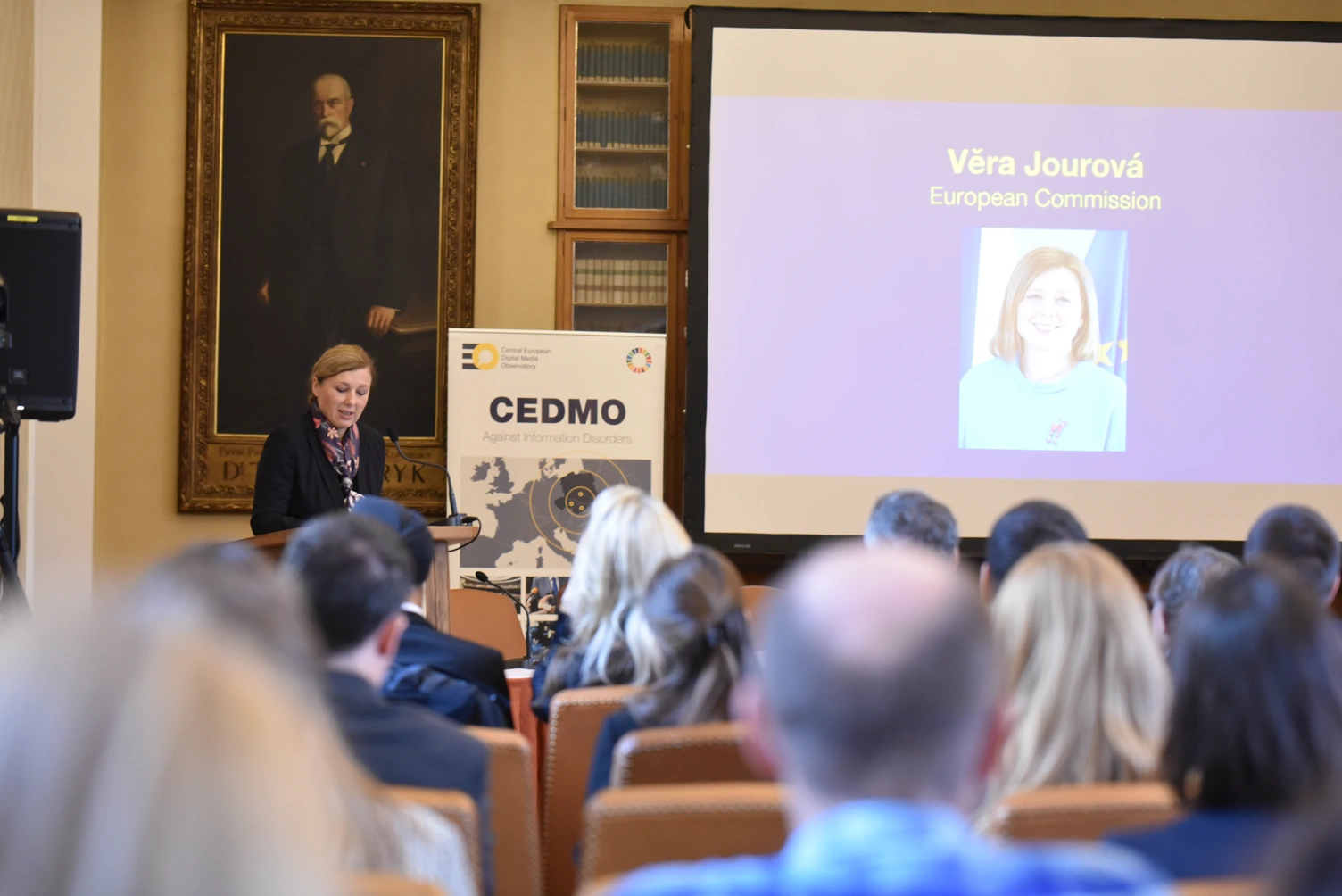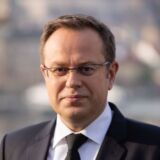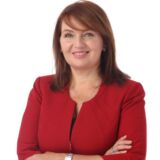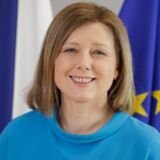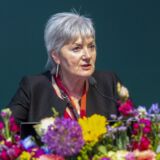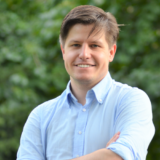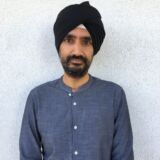
The second annual CEDMO conference Dilemmas in European Democracy: Is the Community Heading towards Political Nightfall and Technological Anomy?, took place in Prague on 6th November 2023 at Charles University. The high-profile gathering welcomed EU and NGO representatives, journalists, academics, policymakers, as well as disinformation experts, namely media literacy professionals, fact checkers, and technology actors.
During the event, diverse topics were explored and analyzed, namely:
- the lessons learned from the recent elections in the CEE region and ways in which disinformation affects citizens’ trust in democracy, their electorate, or their perception of foreign powers’ interference in the elections
- the role of generative AI in tackling disinformation disorders and its potential to incite but also to prevent the spread of disinformation
- the importance of finding a balance between EU regulation efforts and technological advancement
- new approaches and trends in media literacy and fact-checking and interconnectedness between these two activities
The Czech President, Petr Pavel, pre-recorded a message for the conference where he stressed the importance of the conference’s topics as they affect our future and said that “It is, therefore, our common task to strengthen the resilience of our societies while preserving democratic freedoms.”
During the Grand Opening, Věra Jourová, the Vice-President of the European Commission, reminded us of the crucial role played by online platforms in tackling disinformation “Online platforms have become an unprecedented tool for spreading disinformation. Online platforms have a responsibility” but also discussed the upcoming European Parliament elections and reiterated that “Our priority in the Commission is to get ready for elections. It is important that they are free from any foreign malign influence and that trust in the democratic elections remains high. Signatories of the Code of Practice are notably prepared to take targeted action to prepare for the elections in the following areas: demonetization, transparency of political advertising, prohibiting manipulative behavior, deploying user empowerment measures, strengthening fact-checking and improving access to data for researchers.” Showcasing the diligent work done at the EU level.
In addition, Paolo Cesarini, a Programme Director of the European Digital Media Observatory (EDMO) outlined four key challenges faced by the counter-disinformation community today. One of them is political, and Mr. Cesarini pointed out that given the numerous series of global crises, there is a “raised level of social polarization, geopolitical instability, distrust among citizens ” which in turn leads to an increased volume of work the community-fighting disinformation has to face but also to a higher number of crises they have to tackle. Last but not least, Luciano brought attention to a technological challenge, in which we are, “moving from deep fakes to cheap fakes” and noted that “AI needs to be harnessed for the good.”
You can find out more by watching the panel’s recordings below:
